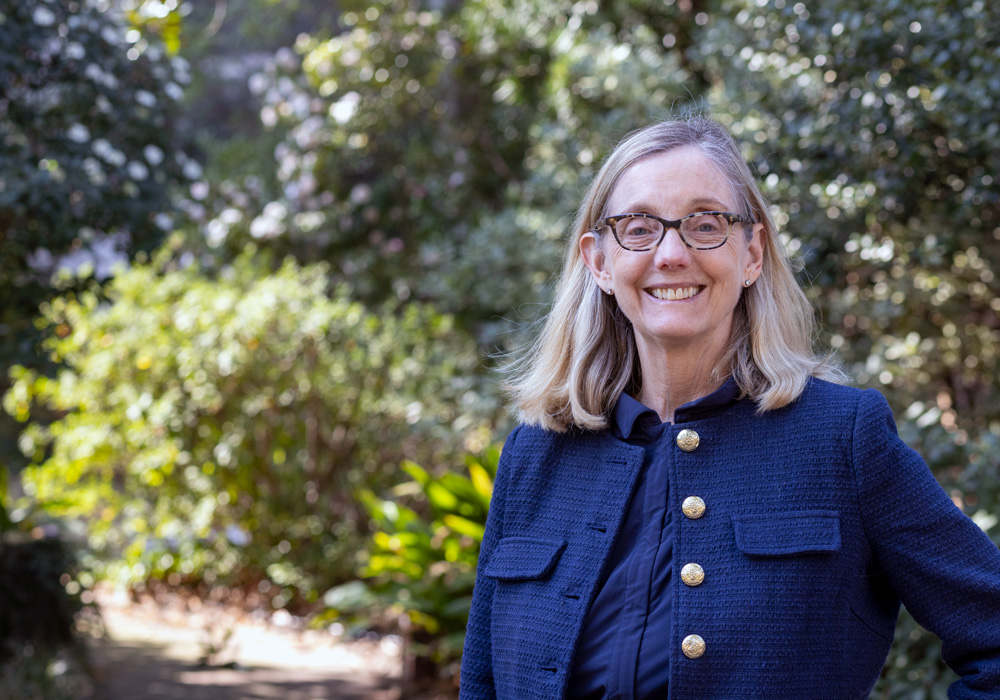Half a million Americans are diagnosed annually with dementia, so finding ways to prevent its onset is a focus of public health researchers, including a University of South Carolina professor who is testing simple techniques for older adults.
“I’m keenly interested in lifestyle modifications as prevention strategies for the onset of dementia,” says Jean Neils-Strunjas, a speech-language pathology professor and chair of the communication sciences and disorders department in the Arnold School of Public Health. “The ability to maintain cognition with age is key, and my aim is to come up with helpful recommendations, activities and interventions.”
Neils-Strunjas was collaborating with exercise scientists on a project aimed at keeping nursing home residents socially engaged through exercise until the COVID pandemic struck in 2020. The ensuing lockdown at such facilities offered an extraordinary, though frightening insight into the detrimental effects on cognition when social engagement declines, she says.
Since then, Neils-Strunjas has been collaborating on research projects, some funded by the Centers for Disease Control, that study the cognitive benefits of mindfulness, mindful walking, and intergenerational book clubs.
"We’re looking at exercise and social engagement as basic prevention strategies. These are lifestyle modifications that almost anyone can do."
“Some very recent research found that people who engaged in 10 minutes of mindful meditation had lower self-perceived stress following that exercise,” she says. “So, I’m trying to look at it in relation to some of the cognitive tests that we administer in our research to measure just how much benefit it can have.”
The intergenerational book clubs pair college students with older adults to stimulate not only conversation but the ability to exercise thinking resources that are the foundation of cognition.
“There is some decline in cognitive processes with age, and, of course, there’s a dramatic decline with dementia, so we’re looking at exercise and social engagement as basic prevention strategies,” Neils-Strunjas says. “These are lifestyle modifications that almost anyone can do.”
Another key factor in the onset of dementia is hearing, she says. Some cases of dementia can be explained by hearing loss, which affects one’s ability to socially interact and cognitively process information from others.
“Maximizing your ability to hear other people is really important, so avoid noisy environments that could cause hearing loss and monitor for high blood pressure, which can negatively affect hearing,” Neils-Strunjas says. “If you need hearing aids, get them and use them.”
Neils-Strunjas also encourages older adults to remain physically active and socially engaged and to explore mindfulness activities that can decrease stress. “Stress has a negative impact on cognitive ability, and preventing cognitive decline is the linchpin in preventing dementia.”
